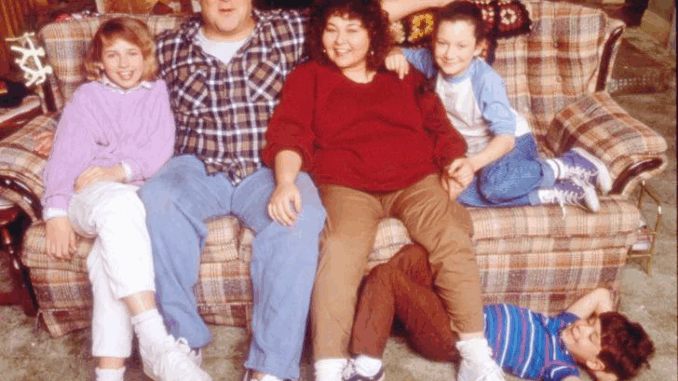
When Roseanne first hit the airwaves in 1988, it was unlike anything TV had seen. Real families. Real struggles. Real weight gain. Real bills. And leading the charge was Roseanne Barr: sharp-tongued, fearless, and refreshingly normal.
But three decades later, the name “Roseanne” doesn’t just spark nostalgia — it lights a firestorm. So what the hell happened?
The Show That Told America: You’re Not Alone
Roseanne wasn’t just a sitcom — it was a cultural revolution. While other shows gave us glossy Manhattan apartments and wise-cracking teens, Roseanne gave us a Midwestern family scraping by paycheck to paycheck. The Conners didn’t have a perfect marriage. Their house was messy. Their kids talked back. And somehow, America loved it.
The series was praised for tackling taboo topics: poverty, teenage pregnancy, domestic abuse, LGBTQ+ rights, addiction, and mental health — before it was trendy.
Roseanne Barr: The Unfiltered Feminist Icon — Until She Wasn’t
In the ’90s, Roseanne Barr was a feminist icon. A loud, unapologetic woman dominating prime-time TV. She was hailed as the voice of working-class women and Time even called her “the domestic goddess of dysfunction.”
But behind the scenes? Chaos.
Reports of on-set feuds, creative control battles, and off-screen controversies followed her like a bad laugh track. And in 2018, her tweet — considered racist — got her reboot canceled in a single day.
Just like that, TV’s most relatable mom became the internet’s most canceled celebrity.
The Reboot That Exploded — And Reincarnated Without Her
After nearly 20 years off the air, Roseanne returned in 2018… and exploded in ratings. Fans flocked to see the Conners again. The comeback looked unstoppable — until Roseanne tweeted.
Within hours, ABC dropped her. By the end of the week, The Conners was born — same family, minus their matriarch. The show went on… but the legacy was split.
Some said justice was served. Others cried cancel culture overreach. The debate hasn’t cooled since.
A Mirror for America — Cracked, but Still Reflecting
Roseanne was always a reflection of America: messy, opinionated, conflicted, and proud. That’s what made it powerful — and dangerous.
Even after the fall, it still raises uncomfortable questions:
-
Can art be separated from the artist?
-
What happens when the voice of the people gets too loud?
-
And most chillingly: would Roseanne even be greenlit today?
Final Word: Love It or Hate It — Roseanne Changed Television Forever
There’s no denying it: Roseanne cracked the sitcom mold and redefined what “relatable” meant on TV. It paved the way for The Office, Shameless, and even Abbott Elementary.
It made us laugh. It made us squirm. And in the end, it made us confront the flaws in the people we put on pedestals.
Because Roseanne wasn’t perfect — and that was exactly the point.
